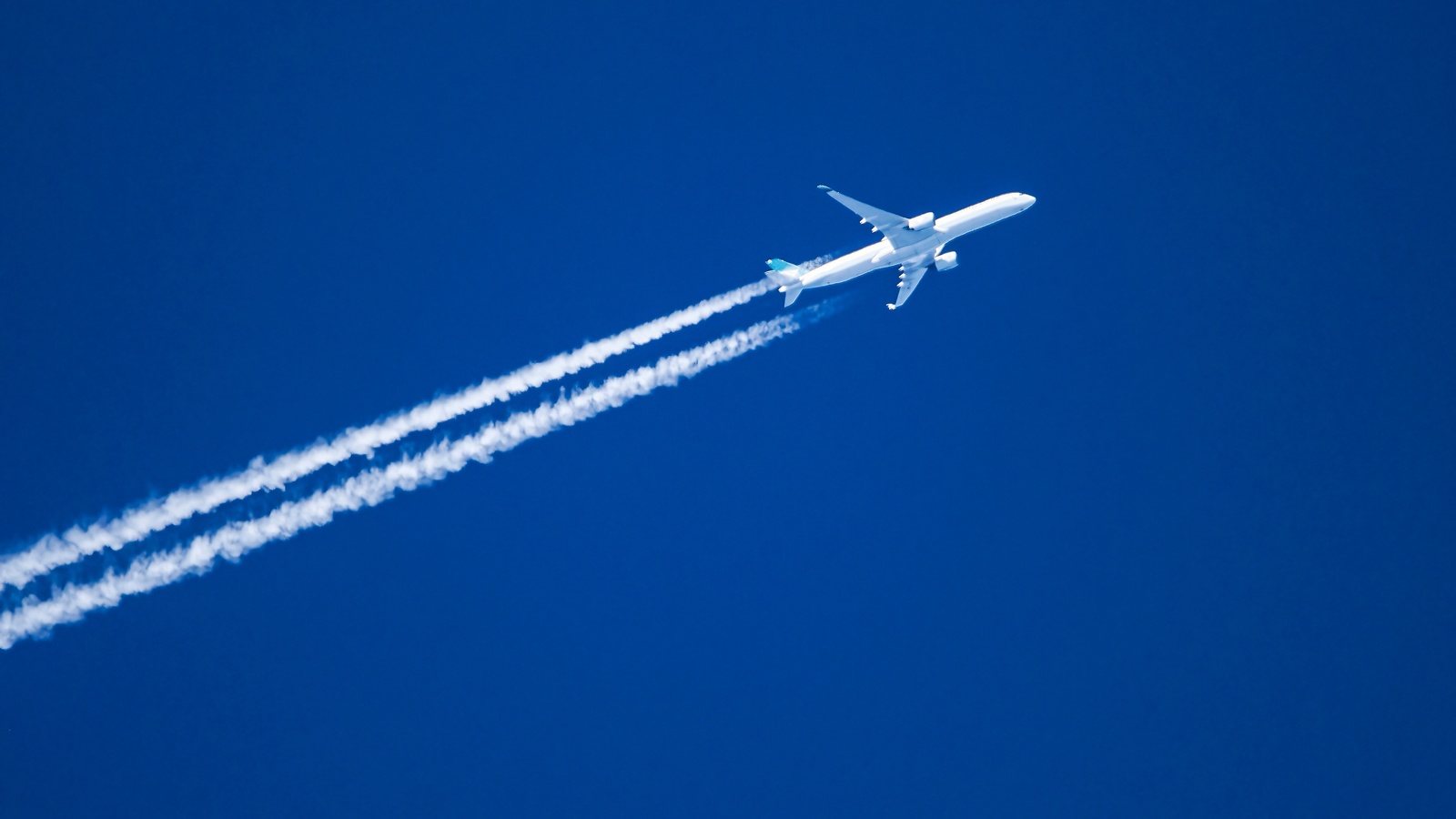
Tanya Weaver Thu 14 Nov 2024
Collected at: https://eandt.theiet.org/2024/11/14/contrail-avoidance-simple-and-cheap-way-aviation-reduce-its-climate-impact
Climate-damaging emissions from aircraft jet engines could be tackled for less than £4 a flight, a new study by campaign group Transport & Environment (T&E) says.
Contrails, or vapour trails, are line-shaped clouds produced by aircraft engine exhaust or changes in air pressure, typically at aircraft cruising altitudes several kilometres above the Earth’s surface.
While the exact warming effect of contrails is uncertain, it is believed to be greater than warming caused by aviation’s CO2 emissions.
A study published by T&E finds that with only 3% of flights generating 80% of contrail warming, a ‘quick fix’ lies in tweaking the flight paths of these aircraft.
Rerouting this small amount of flights could reduce global contrail warming by more than half by 2040, the study says. It also estimates that doing so would only add around £3.50 to a ticket from a flight from Paris to New York, for example.
The climate benefits from avoiding the most warming contrails would always be larger than the climate impact from the extra CO2 emissions, the analysis found.
Carlos Lopez de la Osa, aviation technical manager at T&E, said: “The aviation industry is being offered a simple and cheap way to reduce its climate impact.
“Some industry actors overstate the scientific uncertainty of warming contrails, but the climate benefits of contrail avoidance are huge and solutions are improving by the day.”
Geography and flight latitude have a strong influence on whether a contrail is warming. For instance, to reduce jet fuel consumption, modern aircraft are designed to fly at higher altitudes where the air is thinner with less aerodynamic drag. However, doing so means they create contrails that take longer to dissipate – creating a warming effect for longer .
According to the study, flights over North America, Europe and the northern Atlantic accounted for more than half of global contrail warming in 2019, with contrails from evening and night flights, or during the winter, having the largest warming contribution.
Contrail avoidance is also a solution that could be deployed at scale, but T&E said this required decisive action from regulators.
It suggested that governments should prioritise funding for contrail avoidance research and offer incentives to early mover airlines and manufacturers.
Lopez said: “There are very few climate solutions that can be implemented so quickly, at so little cost and with little impact to industry and consumers.
“But this can only happen if we include contrail mitigation in our climate targets and adopt groundbreaking policies to monitor, avoid contrails and mandate solutions.”
According to a BBC article, the problem of contrails will be discussed at the UN climate conference, COP29, which is taking place from 11 to 22 November 2024 in Baku, Azerbaijan.

Leave a Reply